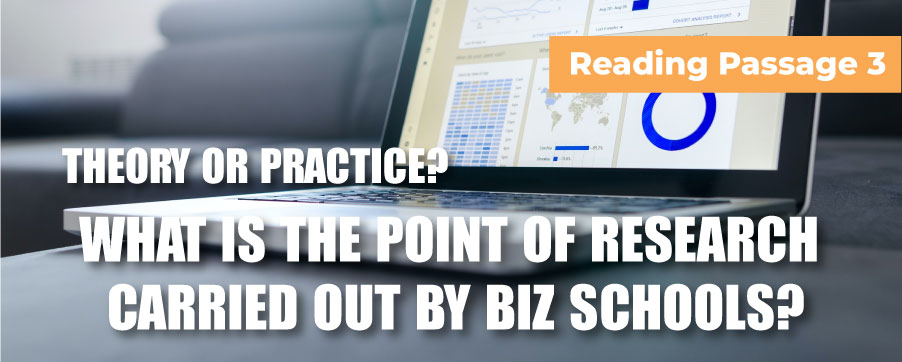
IELTS Recent Mock Tests Volume 5
- Published on: 24 Jan 2018
- Tests taken: 1,568,790
Answer Keys:
Part 1: Question 1 - 13
- 1 FALSE
- 2 NOT GIVEN
- 3 TRUE
- 4 FALSE
- 5 NOT GIVEN
- 6 FALSE
- 7 (his) diaries
- 8 3/three years
- 9 (convict's) chains
- 10 Governor Philip
- 11 June 1789
- 12 China
- 13 Sydney Cove
- 1 FALSE
- 2 NOT GIVEN
- 3 TRUE
- 4 FALSE
- 5 NOT GIVEN
- 6 FALSE
- 7 (his) diaries
- 8 3/three years
- 9 (convict's) chains
- 10 Governor Philip
- 11 June 1789
- 12 China
- 13 Sydney Cove
Part 2: Question 14 - 26
- 14 vi
- 15 ii
- 16 iv
- 17 viii
- 18 i
- 19 v
- 20 21 B,E
- 22 23 A,E
- 24 (national) newspaper
- 25 arms dealers
- 26 victory
- 14 vi
- 15 ii
- 16 iv
- 17 viii
- 18 i
- 19 v
- 20 21 B,E
- 22 23 A,E
- 24 (national) newspaper
- 25 arms dealers
- 26 victory
Part 3: Question 27 - 40
- 27 C
- 28 A
- 29 A
- 30 31 B,D
- 32 FALSE
- 33 FALSE
- 34 TRUE
- 35 NOT GIVEN
- 36 FALSE
- 37 C
- 38 D
- 39 A
- 40 B
- 27 C
- 28 A
- 29 A
- 30 31 B,D
- 32 FALSE
- 33 FALSE
- 34 TRUE
- 35 NOT GIVEN
- 36 FALSE
- 37 C
- 38 D
- 39 A
- 40 B
Review & Explanations:
Questions 1-6
Do the following statements agree with the information given in Reading Passage 1?
In boxes 1-6 on you answer sheet, write
| TRUE | if the statement agrees with the information |
| FALSE | if the statement contradicts the information |
| NOT GIVEN | If there is no information on this |
1 There was a great deal of information available about the life of Tench before he arrived in Australia.
2 Tench drew pictures to illustrate different places during the voyage.
3 Other military personnel in New South Wales did not TREAT convicts in the same way as Tench did.
4 Tench’s view towards the Aboriginals remained unchanged during his time in Australia.
5 An Aboriginal gave him gifts of food at the first time they met.
6 The convicts had a good knowledge of Australian geography.
- 1 Answer: FALSE
From Q1-Q6: True/False/Not given
Identify the key words in the statements to help you scan for information. Pay attention to synonyms.
Try to identify the qualifying words (words that makes a sentence true/false). Ex: all, never, no, nobody, every, not, etc
Use the keywords to read the passage and get the answers
Key words in Questions
Similar words in Passage
Q1: There was a great deal of information available about the life of Tench before he arrived in Australia.
Apart from his years in Australia, people knew little about his life back in
Britain.
Note:
Question: a great deal of information available about the life of Tench
Passage: people knew little about his life
For that reason, the answer is FALSE
- 2 Answer: NOT GIVEN
Keywords in Questions
Similar words in Passage
Q2: Tench drew pictures to illustrate different places during the voyage.
During the voyage, which was harsh and took many months, Tench described
landscape of different places.
Note:
The passage mentions that he described landscape of different places, but there is no such thing as “drew pictures”.
So, the answer is NOT GIVEN
- 3 Answer: TRUE
Keywords in Questions
Similar words in Passage
Q3: Other military personnel in New South Wales did not TREAT convicts in the same way as Tench did.
[...] was given extra power and responsibility over the convicted crew members. However, he was also still very different from the upper-class rulers who came to rule over the crew. He showed humanity towards the convicted workers. He didn’t want to treat them as common criminals, but as trained military men.
Note:
The passage clearly stated that Tench treated convicts with humanity and he saw them as military men, not criminals. However, other upper-class rulers didn't do the same thing as Tench did. These rulers "came to rule over the crew" ("crew" here means "convicts"). For that reason, the answer is TRUE.
- 4 Answer: FALSE
Keywords in Questions
Similar words in Passage
Q4: Tench’s view towards the Aboriginals remained unchanged during his time in Australia.
When they first arrived, Tench was fearful and contemptuous towards the
Aboriginals, because the two cultures did not understand each other. However,
gradually he got to know them individually and became close friends with
them.
Note:
Question: it mentions “unchanged”
Passage: it says that at first, he was fearful and contemptuous, then he became their friends. So his view changed.
Therefore, the answer is FALSE
- 5 Answer: NOT GIVEN
Keywords in Questions
Similar words in Passage
Q5: An Aboriginal gave him gifts of food at the first time they met.
He recalled the first time he stepped into this
unfamiliar ground with a boy who helped Tench navigate. In these new lands,
he met an old Aboriginal.
Note:
Passage mentions an old Aboriginal, but there is no such thing like “gave him gifts of food”
For that reason, the answer is NOT GIVEN
- 6 Answer: FALSE
Keywords in Questions
Similar words in Passage
Q6: The convicts had a good knowledge of Australian geography.
Much of Australia was unexplored by the convicts. Even Tench had little understanding of what existed beyond the established lines of their colony.
Note:
Question: a good knowledge of Australian geography.
Passage: little understanding what existed beyond the established lines of their colony.
So, the answer is FALSE
From Q7-Q13: Short Answer Questions
Read the question to know how many words you can write
Underline the keywords in the question. Think about what type of information you have to look for.
Use the Keywords to scan for the answer. Pay attention to synonyms.
Questions 7-13
Answer the questions below.
Choose NO MORE THAN TWO WORDS AND/OR A NUMBER from the passage for each answer.
Write your answers in boxes 7-13 on your answer sheet.
What could be a concrete proof of Tench’s good education?
7
How many years did Tench sign the contract to the First Fleet?
8
What was used to control convicts during the voyage?
9
Who gave the order to punish the Aboriginals?
10
When did the name of Hawkesbury River come into being?
11
Where did the escaped convicts plan to go?
12
In which place did Tench feel unaccustomed?
13
- 7 Answer: (his) diaries
Keywords in Questions
Similar words in Passage
Q7: In what thing did Tench show his outstanding linguistic skill and good education?
His diaries from his travels to Australia are written in excellent English, a skill that not everyone was lucky to possess in the 18th century.
Note:
Considering every detail in the question and in the passage, we can conclude that “his diaries” must be the answer.
For that reason, the answer is his diaries
- 8 Answer: 3/three years
Keywords in Questions
Similar words in Passage
Q8: How many years did Tench sign the contract to the First Fleet?
When his ship set out in 1788, he signed a three years’ service to the First Fleet.
Note:
Considering every detail in the question and in the passage, we can conclude that “there years” must be the answer.
For that reason, the answer is three years
- 9 Answer: (convict's) chains
Keywords in Questions
Similar words in Passage
Q9: What was used to control convicts during the voyage?
Under Tench’s authority, he released the convicts’ chains which were used to control them
during the voyage.
Note:
Considering every detail in the question and in the passage, we can conclude that “chains” must be the answer.
For that reason, the answer is Chains
- 10 Answer: Governor Philip
Keywords in Questions
Similar words in Passage
Q10: Who gave the order to punish the Aboriginals?
At one point, he was unable to follow the order given by the Governor Philip to punish the ten Aboriginals.
Note:
Considering every detail in the question and in the passage, we can conclude that “Governor Philip” must be the answer.
For that reason, the answer is Governor Philip
- 11 Answer: June 1789
Keywords in Questions
Similar words in Passage
Q11: When did the name of Hawkesbury River come into being?
The Hawkesbury River was named by Governor Philip in June 1789.
Note:
Considering every detail in the question and in the passage, we can conclude that “June 1789” must be the answer.
- 12 Answer: China
Keywords in Questions
Similar words in Passage
Q12: Where did the escaped convicts plan to go?
The convicts were notoriously ill-informed about Australian geography, as was evident in the attempt by twenty absconders to walk from Sydney to China in 1791.
Note:
Considering every detail in the question and in the passage, we can conclude that “China” must be the answer.
For that reason, the answer is China
- 13 Answer: Sydney Cove
Keywords in Questions
Similar words in Passage
Q13: In which place did Tench feel unaccustomed?
A few days after arrival at Botany Bay, their original location, the fleet moved to the more suitable Port Jackson where a settlement was established at Sydney Cove on 26 January 1788. This second location was strange and unfamiliar, and the fleet was on alert for any kind of suspicious behaviors.
Note:
It has been stated clearly in the passage that Tench and his fellows moved to a new place call Sydney Cove and they found this place totally strange and unfamiliar.
The word "unaccustomed" in question 13 has the same meaning as "strange" and "unfamiliar".
For that reason, the answer is Sydney Cove.
READING PASSAGE 1
You should spend about 20 minutes on Questions 1-13, which are based on Reading Passage 1 below.

The Extraordinary Watkin Tench
At the end of 18th century, life for the average British citizen was changing. The population grew as health and industrialisation took hold of the country. However, land and resources were limited. Families could not guarantee jobs for all of their children. People who were poor or destitute had little option. To make things worse, the rate of people who turned to crime to make a living increased. In Britain, the prisons were no longer large enough to hold the convicted people of this growing criminal class. Many towns and governments were at a loss as to what to do. However, another phenomenon that was happening in the 18th century was I exploration of other continents. There were many ships looking for crew members who would risk a month-long voyage across a vast ocean. This job was risky and dangerous, so few would willingly choose it. However, with so many citizens without jobs or with criminal convictions, they had little choice. One such member of this new lower class of British citizens was named Watkin Tench. Between 1788 and 1868, approximately 161,700 convicts were transported to the Australian colonies of New South Wales, Van Diemen’s land and Western Australia. Tench was one of these unlucky convicts to sign onto a dangerous journey. When his ship set out in 1788, he signed a three years’ service to the First Fleet.
Apart from his years in Australia, people knew little about his life back in Britain. It was said he was born on 6 October 1758 at Chester in the county of Cheshire in England. He came from a decent background. Tench was a son of Fisher Tench, a dancing master who ran a boarding school in the town and Margaritta Tarleton of the Liverpool Tarletons. He grew up around a finer class of British citizens, and his family helped instruct the children of the wealthy in formal dance lessons. Though we don’t know for sure how Tench was educated in this small British town, we do know that he is well educated. His diaries from his travels to Australia are written in excellent English, a skill that not everyone was lucky to possess in the 18th century. Aside from this, we know little of Tench’s beginnings. We don’t know how he ended up convicted of a crime. But after he started his voyage, his life changed dramatically.
During the voyage, which was harsh and took many months, Tench described landscape of different places. While sailing to Australia, Tench saw landscapes that were unfamiliar and new to him. Arriving in Australia, the entire crew was uncertain of what was to come in their new life. When they arrived in Australia, they established a British colony. Governor Philip was vested with complete authority over the inhabitants of the colony. Though still a young man, Philip was enlightened for his age. From stories of other British colonies, Philip learnt that conflict with the original peoples of the land was often a source of strife and difficulties. To avoid this, Philip’s personal intent was to establish harmonious relations with local Aboriginal people. But Philip’s job was even more difficult considering his crew. Other colonies were established with middle-class merchants and craftsmen. His crew were convicts, who had few other skills outside of their criminal histories. Along with making peace with the Aboriginal people, Philip also had to try to reform as well as discipline the convicts of the colony.
From the beginning, Tench stood out as different from the other convicts. During his initial time in Australia, he quickly rose in his rank, and was given extra power and responsibility over the convicted crew members. However, he was also still very different from the upper-class rulers who came to rule over the crew. He showed humanity towards the convicted workers. He didn’t want to treat them as common criminals, but as trained military men. Under Tench’s authority, he released the convicts’ chains which were used to control them during the voyage. Tench also showed mercy towards the Aboriginal people. Governor Philip often pursued violent solutions to conflicts with the Aboriginal peoples. Tench disagreed strongly with this method. At one point, he was unable to follow the order given by the Governor Philip to punish the ten Aboriginals.
When they first arrived, Tench was fearful and contemptuous towards the Aboriginals, because the two cultures did not understand each other. However, gradually he got to know them individually and became close friends with them. Tench knew that the Aboriginal people would not cause them conflict if they looked for a peaceful solution. Though there continued to be conflict and violence, Tench’s efforts helped establish a more peaceful negotiation between the two groups when they settled territory and land-use issues.
Meanwhile, many changes were made to the new colony. The Hawkesbury River was named by Governor Philip in June 1789. Many native bird species to the river were hunted by travelling colonists. The colonists were having a great impact on the land and natural resources. Though the colonists had made a lot of progress in the untamed lands of Australia, there were still limits. The convicts were notoriously ill-informed about Australian geography, as was evident in the attempt by twenty absconders to walk from Sydney to China in 1791, believing: “China might be easily reached, being not more than a hundred miles distant, and separated only by a river.” In reality, miles of ocean separated the two.
Much of Australia was unexplored by the convicts. Even Tench had little understanding of what existed beyond the established lines of their colony. Slowly, but surely, the colonists expanded into the surrounding area. A few days after arrival at Botany Bay, their original location, the fleet moved to the more suitable Port Jackson where a settlement was established at Sydney Cove on 26 January 1788. This second location was strange and unfamiliar, and the fleet was on alert for any kind of suspicious behaviors. Though Tench had made friends in Botany Bay with Aboriginal peoples, he could not be sure this new land would be uninhabited. He recalled the first time he stepped into this unfamiliar ground with a boy who helped Tench navigate. In these new lands, he met an old Aboriginal.













